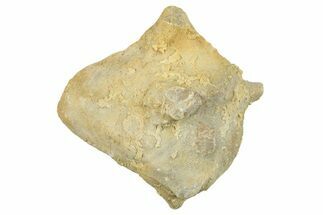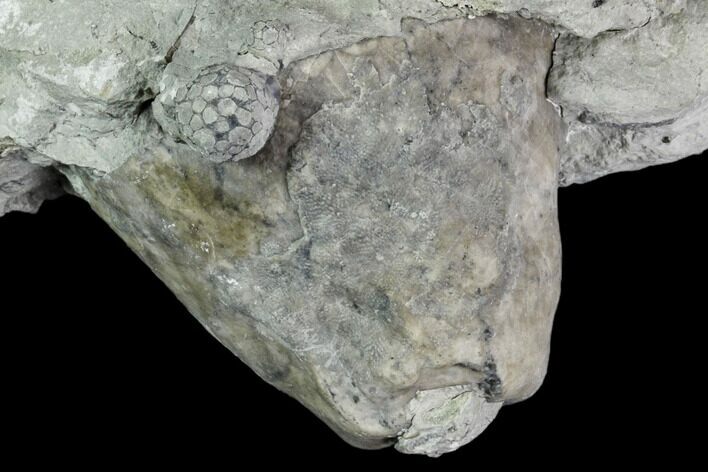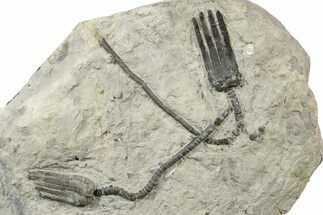This Specimen has been sold.
1.6" Fossil Crinoid (Eucalyptocrinus) Calyx - Indiana
This is a 1.6" fossil calyx of a crinoid (Eucalyptocrinus crassus), from the Waldron Shale Formation, St. Paul, Indiana. This is the calyx (body) of the crinoid. It sat atop the stem and held the Pinnule (feeding arms). It is attached to the rock it was found in. This specimen contains a number of other fossil fragments including brachiopod shell fragments and what is likely two coral colonies.
Comes with acrylic stand.
Comes with acrylic stand.
Crinoids, sometimes commonly referred to as sea lilies, are animals, not plants. They are echinoderms related to starfish, sea urchins, and brittle stars. Many crinoid traits are like other members of their phylum; such traits include tube feet, radial symmetry, a water vascular system, and appendages in multiples of five (pentameral). They first appeared in the Ordovician (488 million years ago) and some species are still alive today.
SPECIES
Eucalyptocrinus crassus
AGE
LOCATION
St. Paul, Indiana
FORMATION
Waldron Shale
SIZE
1.6" wide, 3.7 x 3.3" rock
CATEGORY
SUB CATEGORY
ITEM
#110789
We guarantee the authenticity of all of our specimens.
 Reviews
Reviews











